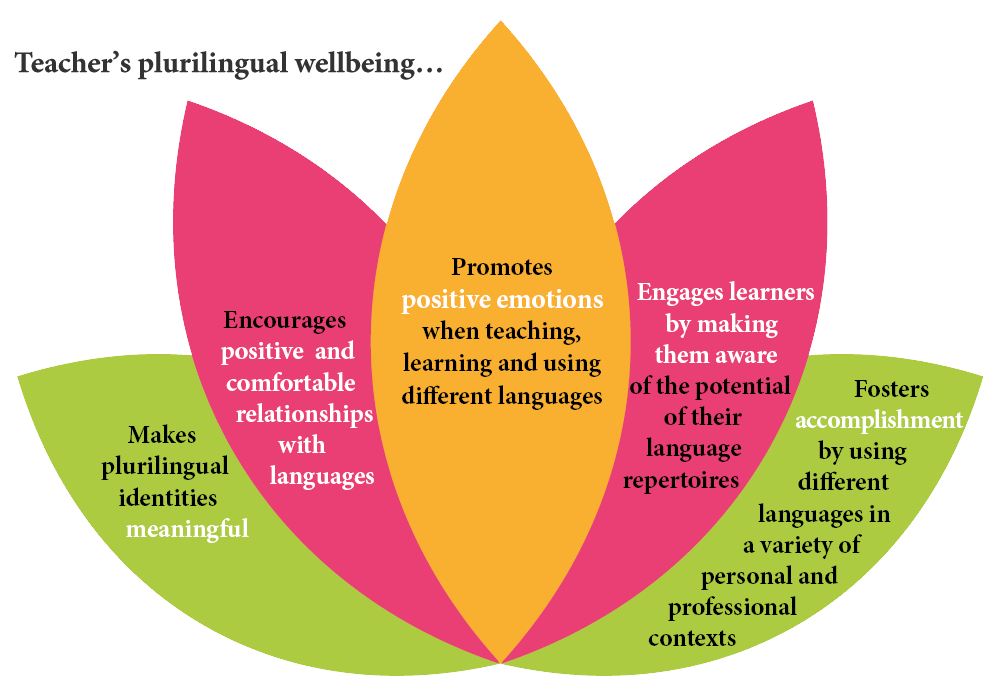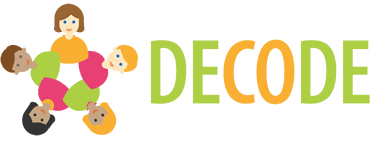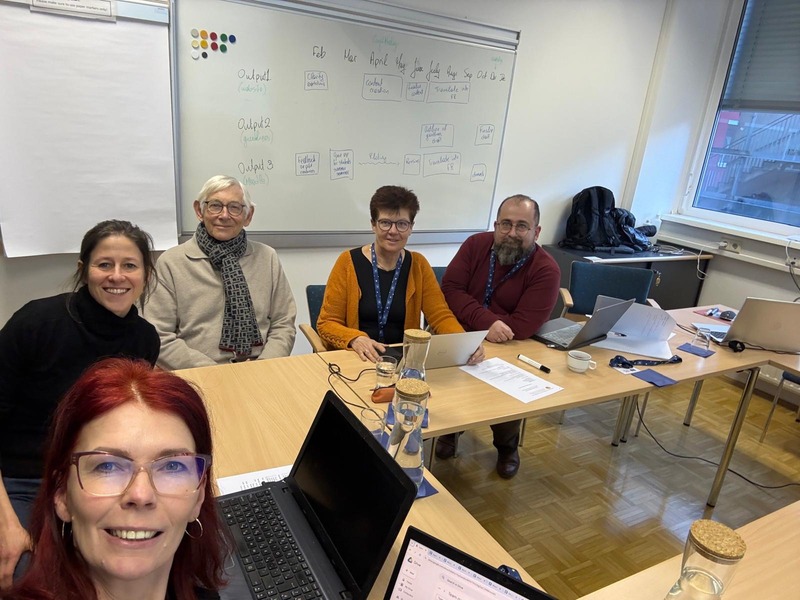Latest news items
20.03.2025
Pluriwell teachers exchange tips and refine tools for plurilingual wellbeing
On 10 March 2025, teachers and language teaching experts from around Europe once again met within the framework of the ECML project Pluriwell. The online gathering was a chance to share the work they have been doing with their local colleagues with the broader Pluriwell community, and to exchange feedback, tips and best practices for creating tools for teachers’ plurilingual wellbeing.
Over 20 participants from countries as far afield as Spain, The Netherlands, Switzerland, Montenegro, France, Slovakia, Hungary and Denmark spent an intensive two hours online, a clear indication of their continued dedication to the project and to helping their colleagues around Europe improve their relationships with languages and plurilingualism. The meeting kicked off with an update from the Pluriwell expert team but most of the time was devoted to the sharing and analysis of the plurilingual wellbeing tools that the participating teachers have been creating over the past few months.
“The small group breakout room sessions were a great chance for the participants to really showcase what they have been doing,” said Pluriwell communications officer Karen Aarøe. “We on the expert team were really satisfied with the quality and variety of the tools that were presented, and we were really pleased with the creativity of our teachers,” she added. Some of the tools discussed included card games with plurilingual challenges, language maps and other visual representations, activities based on storytelling, and a plurilingual identity Lego workshop.
In the coming months, the tools will be assessed by the expert team, and a selection of tools will be compiled and published. “It’s really great to see how the tools are growing and improving,” said Swiss primary school teacher Ingo König. “I'm really excited to see what kind of collection will come out of this,” he added.
Beyond the individual tools, the meeting also offered an opportunity to share more general reflections. For example, several participants agreed that, while Pluriwell tools are designed for teachers, many of the activities and ideas that were shared at the meeting would also be more than suitable for use with students from a variety of age groups. “Some tools could even be used by students and teachers together,” observed project website correspondent Latisha Mary.
Caterina Sugranyes (project coordinator), Karen Aarøe, Gerit Jaritz, Latisha Mary, and Associate partners Josep Ballarin, Kaitlin Balthasar, Will Bromberg
- ECML project website “Fostering the plurilingual wellbeing of language teachers” (2024-26) (available in English and French) : www.ecml.at/pluriwell

19.03.2025
Project launch “Developing competences for democratic culture for young learners through language education” (DECODE)

The aim of the project is the development of materials on competences for democratic culture (CDC) and guidelines for their implementation at the level of primary education, within the Reference Framework of Competences for Democratic Culture (Council of Europe, 2018). At their launch meeting, the project team members developed the first draft of a didactic template for the development of materials on CDC, established the phases for designing the materials on CDC for primary schools, and planned the agenda for the network meeting scheduled in June 2025.
The project team members are: Martina Kramar, project coordinator, Augsburg University, Germany; Manuela Svoboda, University of Rijeka, Croatia; Mai Trang Vu, Umeå University, Sweden; and Emina Jelešković, International
University of Sarajevo, Bosnia and Herzegovina.
The team members met with the ECML representative, Susanna Slivensky, Deputy Executive Director and Head of Programmes. The ECML consultant, Chantal Muller, also joined the expert meeting and provided her feedback on the meeting outputs.
The team discussed and agreed on the next steps of the project, focusing in particular on the activities planned for 2025.
Authors: Emina Jelešković, Mai Trang Vu
- ECML project website “Developing competences for democratic culture for young learners through language education” (2024-26) (available in English and German) : www.ecml.at/decode


17.02.2025
Second AI-Lang expert meeting (January 2025)
During the AI Lang team meeting in Graz on 27–28 January 2025 it was decided that Achilleas Kostoulas will take on the project coordination, as Merilyn Meristo will move on to a challenging leadership position in another research project. Also in connection with this restructuring, Aleksandra Ljalikova has been invited to join our team as Communications Officer. We are saddened by the departure of Prof. Meristo, and we are grateful for the leadership and guidance she provided over the last year. Equally, we are delighted to be joined by Prof. Ljalikova, who has impressive experience in using digital tools and AI in language education.
During the meeting, we worked together to refine and improve the structure and envisaged content of our outputs. We expect to have an update on the project website in the coming weeks. Looking ahead into the future, we are preparing to launch a Moodle course that will help teachers and teacher educators integrate AI into their teaching. Also in preparation is a draft set of guidelines for the meaningful and ethical use of AI in language education.
Another development that we are looking forward to is the upcoming workshop, which will bring together AI experts on 25–26 November 2025. We have already laid down important groundwork for preparing the workshop, and we are looking forward to welcoming participants from across Europe to Graz!
Achilleas Kostoulas, project coordinator
• ECML project website “AI for language education” (2024-27) (available in English and French): www.ecml.at/AI-lang
 Do you wish to participate in the workshop?
Do you wish to participate in the workshop?
Individuals with a special interest and professional background in the topic of this particular project are invited to take up contact with the ECML National Nominating Authority in their country so that they can be considered for participation in the corresponding project workshop.

